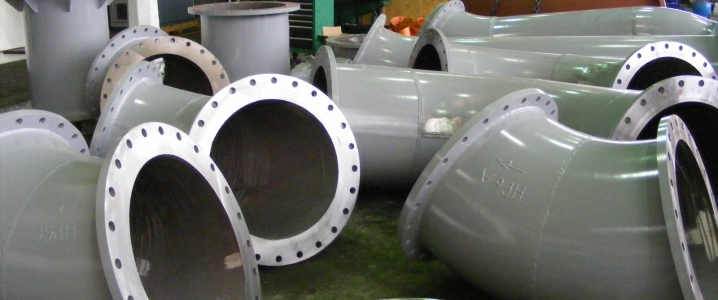The Netherlands has been the source of cheap energy for northwest Europe for the past decades. The discovery of the Groningen gas field, the 9th largest in the world, provided a reliable source of energy in a period when the oil market was rocked by embargos due to the Yom Kippur War in 1973. The future of the Dutch gas sector, however, looks bleak due to two important developments in 2018: a political decision to reduce production with a timeline to stop entirely until 2030 and a new climate agreement. The Netherlands is preparing to make major changes regarding the role of gas in people’s lives.
Massive extraction of natural gas over the course of decades has caused earth tremors that have led to a strong opposition to the energy source within the country. The tremors created dangerous situations for houses in the Netherlands and, after years of demonstrations and discussions, the Dutch government decided in March 2018 to wind down production over a 12 year period until it is stopped entirely in 2030.
The second nail in the coffin of the Netherland’s gas sector is the recent climate agreement between environmental organizations, industry, and policymakers. The accord provides a decisive instruction for the energy sector: all coal power plants will be closed by 2030 and gas will not be a part of the energy mix in 2050. However, some room for nuclear power has been left open as the agreement does not talk of a “100 percent renewable economy” by 2050 but of a “CO2 neutral” one.
In the short to medium term, gas exporters will be buoyed by the news as the Netherlands is a significant consumer with 40 bcm in 2017 and will need to substitute consumption with imports. Two options are available to meet demand: shipped LNG or pipelines. The largest harbour of Europe, Rotterdam, is home to the only LNG facility of the Netherlands. With a maximum yearly capacity of 12 bcm, the regasification plant is significant, but not able to meet the entire demand when all domestic production is halted. Related: What Trump’s Tweet Actually Means For Oil
The only options available to transport gas via pipeline to the Netherlands are Norway and Russia. In the case of the former, export is limited by production capacity. The only realistic option on the table for at least the short to medium term is piped natural gas from Russia.
The exceptionally cold winter of 2018 in large parts of Europe exemplified Russia’s ‘swing’ status in the European gas market. Moscow proved to be the only option to transport large volumes of natural gas in a short timeframe when other options were not available.
The markets have shown strong support for Siberian gas in recent times, with record volumes of relatively cheap energy having been imported, including to the Netherlands, which imports a moderate volume. Furthermore, several European companies including Royal Dutch Shell, Engie, Wintershall, and OMV have shown interest by financing the multi-billion expansion of the subsea Nord Stream 2 pipeline to Germany. Related: This Is How Much U.S. Households Lose As Gas Prices Rise
Although stakeholders, including the Dutch government, have reached an accord on the climate agreement and the phasing out of natural gas until 2050, some research has provided an alternative view. Due to the rising electrification of the society and closure of coal and nuclear power plants within a decade, demand for electricity will increase by almost 50 percent until 2050. Growth in renewable sources will not realistically be able to meet this demand.
Unless a breakthrough in energy technology is achieved, another source of power production is required in order to balance the grid when the sun is not shining or the wind is not blowing. Natural gas is the only relatively clean source with a high energy density able to be stored and transported over long distances.
The Netherlands will remain highly dependent on natural gas to power its economy and keep houses warm during cold winters. Therefore, it is foreseeable that changes will be made to the climate agreement in the future.
By Vanand Meliksetian for Oilprice.com
More Top Reads From Oilprice.com:
- Can Trump Counter Soaring Gasoline Prices?
- This Country Just Started Pumping Oil For The First Time Ever
- How Important Are Egypt’s Gas Discoveries?



















The EU has imported a record high 224 billion cubic metres (bcm) or almost 40% of its needs from Russia in 2017. Soon the Netherland with a consumption of 40 bcm of natural gas in 2017 will soon join other members of the EU and start importing Russian gas.
The EU’s economic need for Russian gas supplies does trump any geopolitical concerns in most of the cases.
Dr Mamdouh G Salameh
International Oil Economist
Visiting Professor of Energy Economics at ESCP Europe Business School, London
Robert Lockwood
Former Counsel, US Senate Judiciary Committee